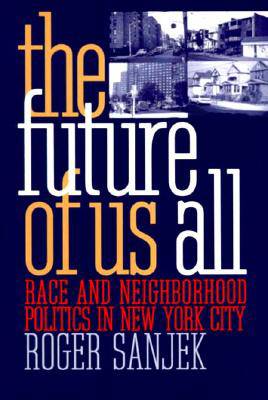
- Afhalen na 1 uur in een winkel met voorraad
- Gratis thuislevering in België
- Ruim aanbod met 7 miljoen producten
- Afhalen na 1 uur in een winkel met voorraad
- Gratis thuislevering in België
- Ruim aanbod met 7 miljoen producten
Omschrijving
Before the next century is out, Americans of African, Asian, and Latin American ancestry will outnumber those of European origin. In the Elmhurst-Corona neighborhood of Queens, New York City, the transition occurred during the 1970s, and the area's two-decade experience of multiracial diversity offers us an early look at the future of urban America. The result of more than a dozen years' work, this remarkable book immerses us in Elmhurst-Corona's social and political life from the 1960s through the 1990s.
First settled in 1652, Elmhurst-Corona by 1960 housed a mix of Germans, Irish, Italians, and other "white ethnics." In 1990 this population made up less than a fifth of its residents; Latin American and Asian immigrants and African Americans comprised the majority. The Future of Us All focuses on the combined impact of racial change, immigrant settlement, governmental decentralization, and assaults on local quality of life which stemmed from the city's 1975 fiscal crisis and the policies of its last three mayors. The book examines the ways in which residents--in everyday interactions, block and tenant associations, houses of worship, small business coalitions, civic rituals, incidents of ethnic and racial hostility, and political struggles against overdevelopment, for more schools, and for youth programs--have forged and tested alliances across lines of race, ethnicity, and language.
From the telling local details of daily life to the larger economic and regional frameworks, this account of a neighborhood's transformation illuminates the issues that American communities will be grappling with in the coming decades.
Specificaties
Betrokkenen
- Auteur(s):
- Uitgeverij:
Inhoud
- Aantal bladzijden:
- 400
- Taal:
- Engels
- Reeks:
Eigenschappen
- Productcode (EAN):
- 9780801434518
- Verschijningsdatum:
- 15/10/1998
- Uitvoering:
- Hardcover
- Formaat:
- Genaaid
- Afmetingen:
- 164 mm x 241 mm
- Gewicht:
- 820 g

Alleen bij Standaard Boekhandel
Beoordelingen
We publiceren alleen reviews die voldoen aan de voorwaarden voor reviews. Bekijk onze voorwaarden voor reviews.












